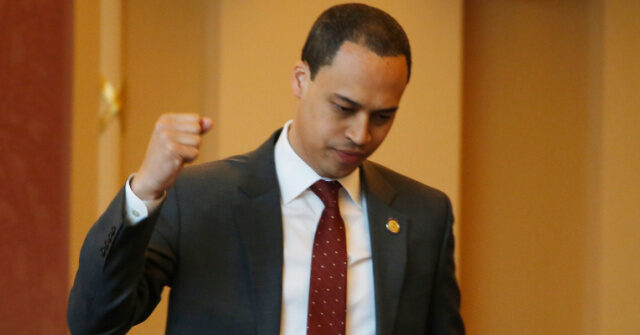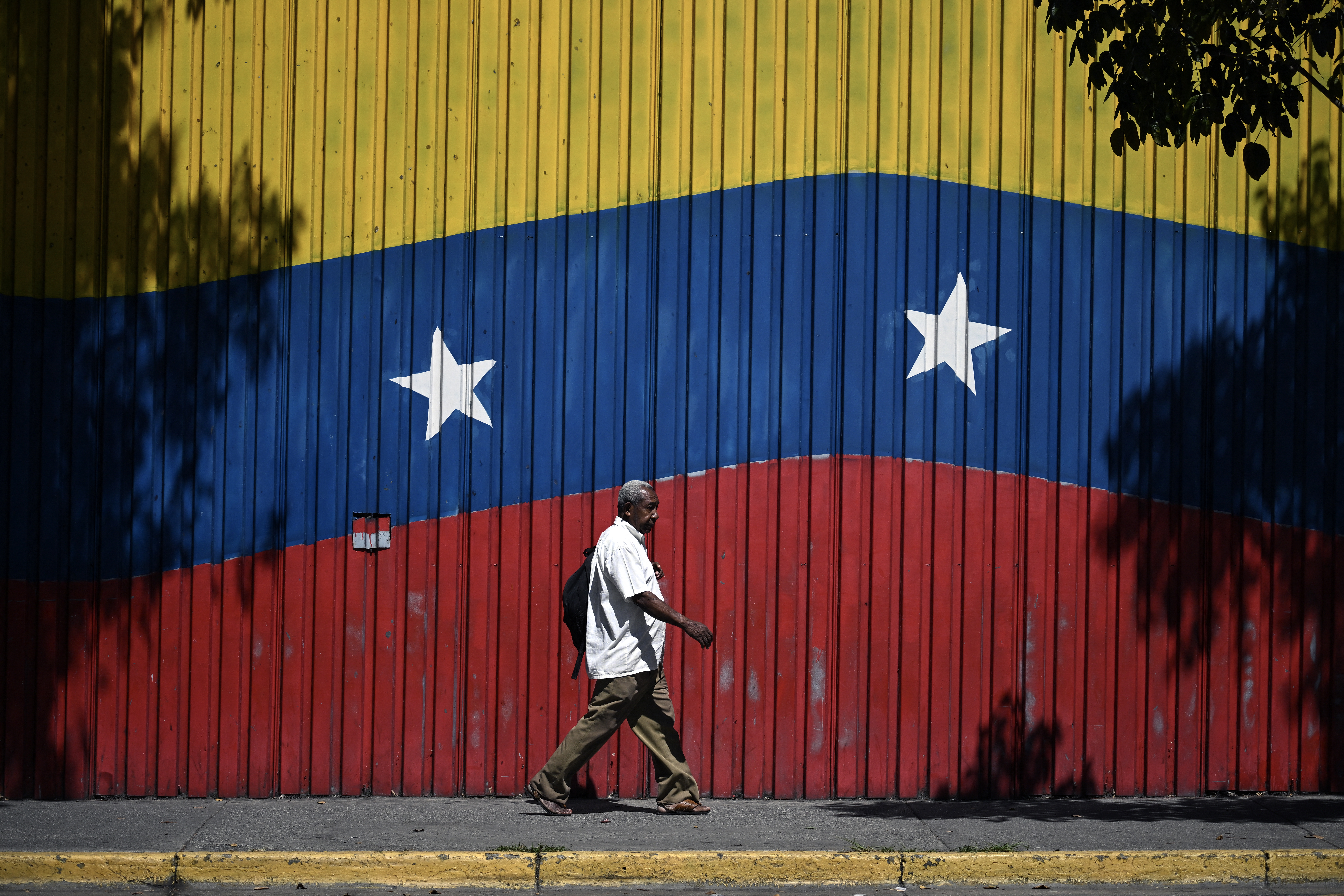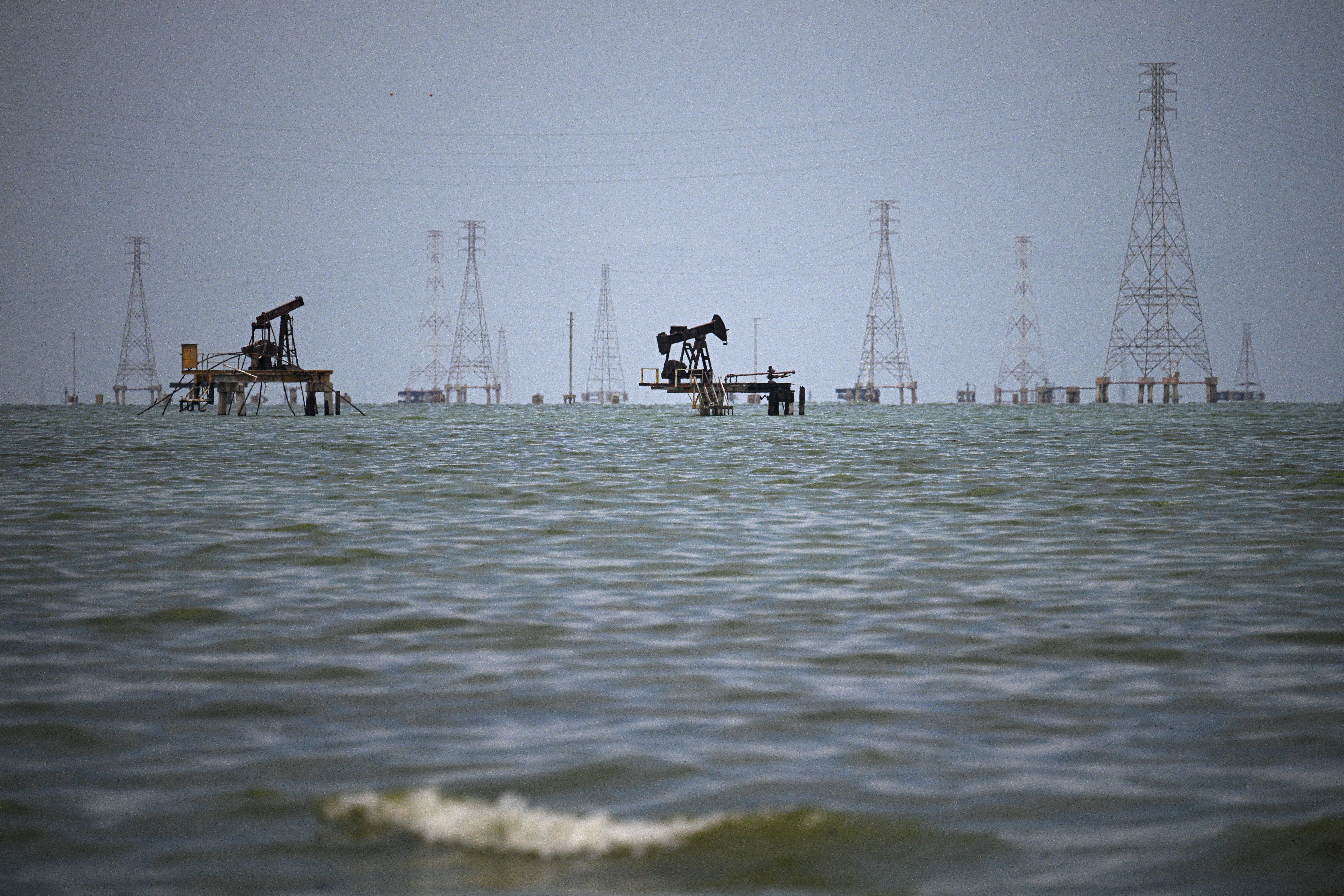
www.theamericanconservative.com
We Need Prudence, Not Perfidy, on Venezuela
Foreign Affairs
We Need Prudence, Not Perfidy, on Venezuela
We can be against crusading idealism without borrowing from progressives’ indulgent self-loathing.
I’m grateful to Jude Russo for taking my piece supporting the Trump administration’s muscular policy toward Venezuela seriously enough to answer it at length—especially given that he had already endured the pain of editing it. His central worry, that my argument risks normalizing executive improvisation, propaganda, and a casual drift toward imperial habit, is not frivolous. On the contrary, anyone who cares about the character of American government should treat those concerns with gravity.
I share, in many respects, the impulse that produces such a critique. If prudence is the conservative virtue par excellence, then skepticism of unaccountable power and of public mendacity is its guardian angel—yes, I’m calling you angelic, Mr. Russo.
But the diagnosis Russo advances flattens two distinct conversations into one: the normative question of how a republic should wield power, and the prudential question of how a republic might—realistically—advance its interests in a dangerous world. My modest claim in the original piece was not that anything goes. Rather, it was that carefully calibrated pressure—I’d add, preferably applied under clear political and legal oversight and disciplined by respect for constitutional norms—can sometimes produce outcomes consonant with American interests.
Let me be plain about where I agree with Russo. I do not like lies. I wish our diplomacy could be more straightforward. I share his fear of the historical pattern whereby expansive executive prerogative corrodes domestic liberties and degrades our institutions. He is right to point out that American power, once unmoored from democratic control and legal constraint, tends to metastasize into something ugly and self-justifying. That is a real danger and worth fighting.
Yet honesty also demands recognizing the complexity that Russo’s piece largely elides. To fault a serious foreign-policy analysis for acknowledging the inescapable realities of deception is akin to reproaching a man for sinning. If diplomacy never deceives, one must ask: Is it even diplomacy?
Statecraft inevitably entails degrees of concealment, selective emphasis, and rhetorical framing. This is not a moral loophole permitting deception for its own sake; rather, it is the historian’s observation that public rhetoric and private calculation often diverge in the service of national survival. Even the Founders, guided by prudence and policy imperatives, sometimes shaped public argument in ways that would strike the modern, literal-minded reader as misleading.
Consider a few examples from the republican archive. During the Revolutionary War, Benjamin Franklin, in Paris, exaggerated American prospects to secure French assistance at a moment when the Continental Army was hardly a safe bet. When Washington proclaimed neutrality in 1793, the language appealed to a principle of impartiality. In truth, the fledgling republic was too weak for open war and far too dependent on British commerce; “neutrality” was in great part a form of strategic cover that allowed quiet reconciliation with London. In 1803, Jefferson, who had long insisted the Constitution did not authorize territorial acquisition, nevertheless embraced the Louisiana Purchase and rationalized it as treaty power; privately, he admitted the move strained his own constitutional scruples because the alternative—refusing a vast and strategically vital acquisition—was worse for the nation.
These were not cases of small lies for small gains; they were deliberate rhetorical choices undertaken in existential contexts. They were, in a manner of speaking, prudential shading of the truth to achieve a public good. Let me be clear, however: Invoking these examples is not meant to excuse modern abuses. It is to insist that the moral vocabulary of statecraft is more nuanced than a binary of “truth” and “lie.” There are degrees of mendacity, and there are outcomes.
There is a stark moral difference between the deception that misleads a people into a catastrophic war on false pretenses and the diplomatic obfuscation that preserves lives and secures national interests without open, bloody intervention. I remain cautiously optimistic that, as the Trump administration ramps up pressure on Venezuela’s Nicolás Maduro, we are still seeing the latter—Russo doesn’t. I can understand that. What I can’t accept is collapsing those two into the same category, erasing the nuance of political judgment.
Russo is right to demand legal clarity and public accountability—and most everyone reading these pages likely concurs, which is precisely why I did not belabor the point. The question that truly deserves asking is this: What should serve as the proper baseline for prudence? Is it reflexive pacifism, an instinctive recoil from any exertion of pressure, or careful realism, which tests means against ends and weighs counterfactuals?
My concern is that certain strands of contemporary anti-interventionism on the political right are increasingly borrowing their instinctive restraint from progressive, post-imperial moralism—an admirable critique in its original context—without fully integrating the conservative cautions against strategic neglect. Put differently, opposing interventions out of compassion or fear is not the same as opposing them because they would be strategically imprudent. Both impulses may yield restraint, and both have their place, but they spring from very different soil.
Conservative foreign policy should not be guided by ideologues eager to sacrifice lives for resources, nor by those who forfeit material interests to sacrifice their moral impulses. Men need to be good—but they must also eat.
I would never suggest that conservatives should grow unthinkingly bellicose. Far from it. What I am saying is that prudence can—and at times must—permit measures short of occupation when they demonstrably reduce threats to American security. To call this “blood for oil” is an easy taunt, but it sidesteps a simple truth: Geostrategy—why we focus here rather than there—and resource access are inseparable parts of statecraft.
Russo objects that Washington’s current practice leans too far into secrecy. Point taken. If the administration is systematically misleading Congress to widen its executive ambit—and especially if critics are correct that war itself is the ultimate aim—it should be held to account. Our disagreement here—my relative optimism and his pessimism—stems less from philosophy than from experience.
There is also a personal dimension I want to put on the table: the charge, leveled against me, of being unpatriotic—an accusation I dislike but, in some ways, understand. As Russo and I both know, I spent part of my life in Venezuela—a fact he chose not to outright mention, perhaps graciously, though it inevitably gives that charge more sting. I bring this up not to elicit sympathy—that would be futile here—but because it’s a biographical detail the reader deserves to know. It may lessen my argument’s strength in the eyes of some, but it clarifies the spirit in which it’s made.
I did not write the piece to soothe foreign patrons I will never serve. I wrote it because I believe—genuinely and uneasily—that a prudent American policy of increased pressure on Venezuela, applied with responsibility, can advance American interests. That I can be accused of putting oil over constitutionality is understandable rhetorical shorthand, but it misreads a difficult judgment for cynicism.
As my friends at The American Conservative know, I’ve never been shy about criticizing the influence of exile communities on American decision-making. I’ve even debated Venezuelans on national television, siding with Trump’s immigration policies—and I wrote a piece on this very subject, in this magazine, back before Washington’s tactics toward Venezuela shifted. Russo might have preferred that one.
I didn’t write this piece because some Venezuelans would applaud. I wrote it because some essays published in TAC, like this rebuke of María Corina Machado’s Nobel nomination, read less like prudential analysis than lefty apologia. (For those unfamiliar: interviewing Miguel Tinker Salas about Machado would be like interviewing Christopher Hitchens or some other caustic atheist about whether priestly confession is biblical.)
I wrote my piece this week—with some hesitation and knowing full well that editors here might disapprove—because I genuinely believe that, if done prudently, America still has much to gain by exerting pressure on Venezuela. My fellow prudence-minded conservatives: For all the common ground we share with our friends on the left when it comes to foreign-policy restraint, our analysis must never draw from an instinctive aversion to power itself. “Wounds from a friend can be trusted, but an enemy multiplies kisses.”
We should not oppose interventions merely out of a disturbed empathy. Our restraint should arise, to a great degree, from sober self-interest. In their fierce refusal to even entertain the idea that U.S. pressure can sometimes serve the good, many of my friends—knowingly or not—are being imprudent themselves. Russo’s warning is salutary; his anxieties about the uneasy seam between statecraft and constitutionalism are justified. Yet we should beware that the fear of abuse does not eclipse the question of how power can be used responsibly. ¿Por qué no los dos?
The post We Need Prudence, Not Perfidy, on Venezuela appeared first on The American Conservative.
















